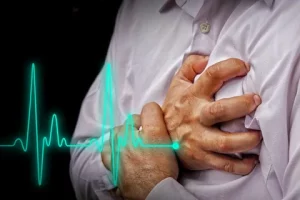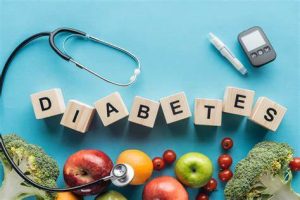Introduction
In today’s fast-paced world, it’s crucial to stay vigilant about our health. Recognizing warning signs of potentially dangerous conditions can be the difference between timely intervention and serious consequences. This article aims to empower you with knowledge about four such conditions and their associated red flags. Explore More About (Food-Related Illness)
Heart Attack: Understanding the Silent Killer
What is a Heart Attack?
A heart attack, also known as a myocardial infarction, occurs when blood flow to a part of the heart is blocked for a long enough time that part of the heart muscle is damaged or dies.
Warning Signs:
- Chest Pain or Discomfort: This is the most common symptom. It may feel like pressure, tightness, squeezing, or pain in the chest that lasts for more than a few minutes or goes away and comes back.
- Upper Body Discomfort: Pain or discomfort may spread beyond the chest to other parts of the upper body, such as one or both arms, the back, neck, jaw, or stomach.
- Shortness of Breath: This may occur with or without chest discomfort.
- Other Signs: Other possible signs include breaking out in a cold sweat, nausea, or lightheadedness.
What to Do:
If you suspect you or someone else is having a heart attack, call emergency services immediately. Every minute counts during a heart attack, so prompt treatment is crucial.

Stroke: Acting Fast Can Save Lives
What is a Stroke?
A stroke happens when blood flow to part of the brain is disrupted, causing brain cells to become damaged or die.
Warning Signs:
- Face Drooping: One side of the face droops or feels numb. When the person smiles, their smile is uneven.
- Arm Weakness: One arm feels weak or numb. When the person raises both arms, one arm drifts downward.
- Speech Difficulty: Speech may be slurred, or the person may have trouble speaking or understanding.
- Time to Call Emergency Services: If you observe any of these signs, it’s essential to call for help immediately.
What to Do:
Act FAST:
- Face: Ask the person to smile. Is it uneven?
- Arm: Ask the person to raise both arms. Does one arm drift downward?
- Speech: Ask the person to repeat a simple phrase. Is their speech slurred?
- Time: If you observe any of these signs, call emergency services right away.

Diabetes: Managing Blood Sugar for a Healthy Life
What is Diabetes?
Diabetes is a chronic condition that affects how your body processes glucose (sugar), leading to high blood sugar levels.
Warning Signs:
- Frequent Urination: Excessive urination, especially at night, is a common symptom.
- Increased Thirst: Feeling thirsty more often and drinking more fluids than usual.
- Unexplained Weight Loss: Despite eating more than usual, there may be significant weight loss.
- Fatigue: Feeling tired and weak, even with adequate rest.
What to Do:
If you experience any of these symptoms, especially if they persist or worsen over time, consult a healthcare professional for evaluation and diagnosis.

Cancer: Early Detection Saves Lives
What is Cancer?
Cancer is a group of diseases characterized by the uncontrolled growth and spread of abnormal cells.
Warning Signs:
- Changes in Bowel or Bladder Habits: Persistent constipation, diarrhea, or changes in the size or color of stool or urine.
- A Sore That Doesn’t Heal: Any sore or ulcer that doesn’t heal within a few weeks, especially if it bleeds.
- Unexplained Weight Loss: Significant weight loss without changes in diet or physical activity.
- Persistent Cough or Hoarseness: A cough that doesn’t go away or becomes chronic, or hoarseness that lasts more than a few weeks.
What to Do:
Regular screenings and self-examinations are crucial for early detection. If you notice any unusual changes in your body, seek medical attention promptly.

Warning Signs of 4 Dangerous Conditions
| Condition | Warning Signs |
|---|---|
| Heart Attack | Chest pain or discomfort, Upper body discomfort, Shortness of breath, Cold sweat, Nausea, Lightheadedness |
| Stroke | Face drooping, Arm weakness, Speech difficulty |
| Diabetes | Frequent urination, Increased thirst, Unexplained weight loss, Fatigue |
| Cancer | Changes in bowel or bladder habits, Non-healing sore, Unexplained weight loss, Persistent cough or hoarseness |
Conclusion
Being aware of warning signs for potentially life-threatening conditions empowers you to take action and seek help when needed. Remember, early detection and intervention can make a significant difference in outcomes. Stay informed, listen to your body, and prioritize your health.




